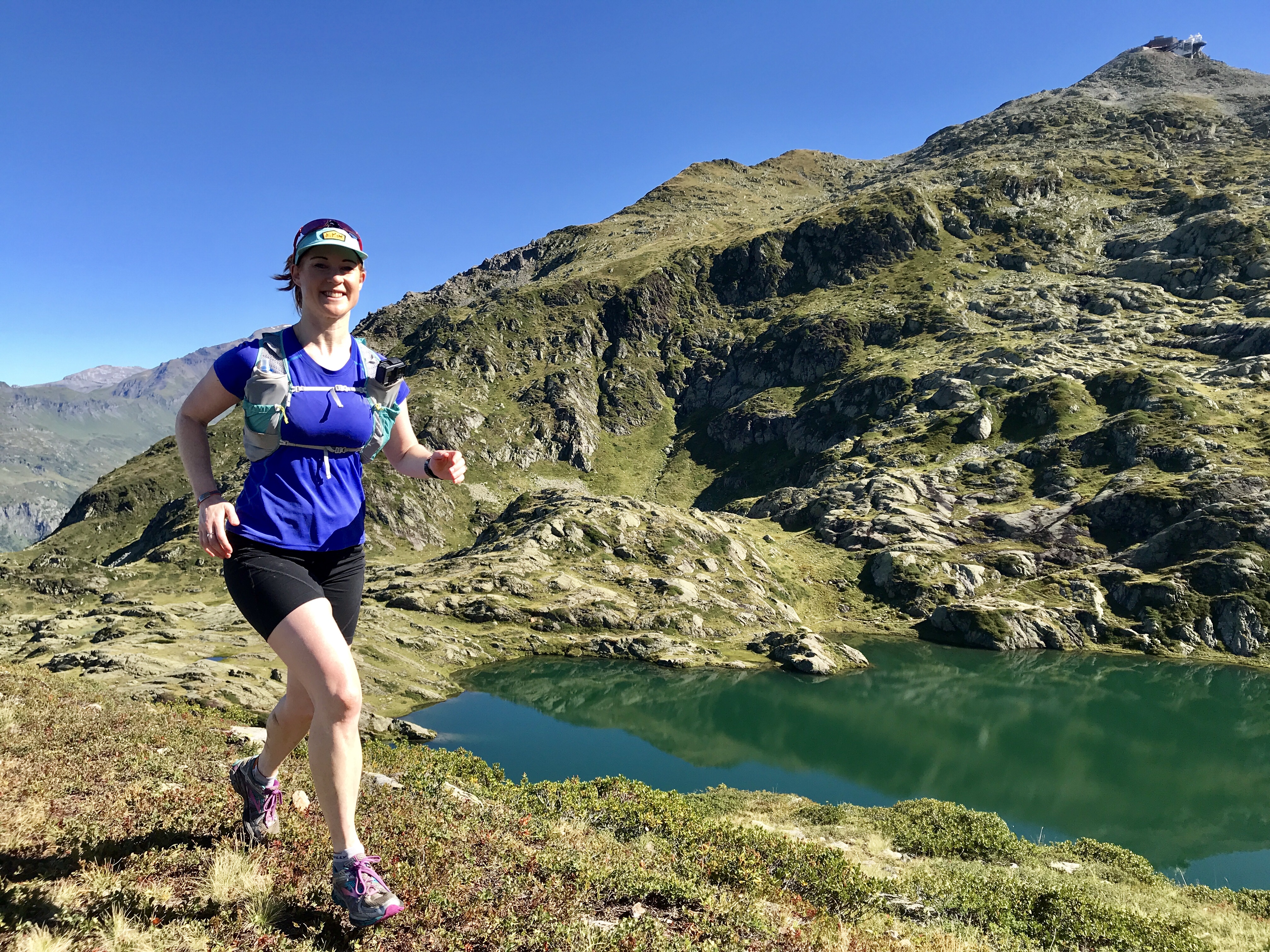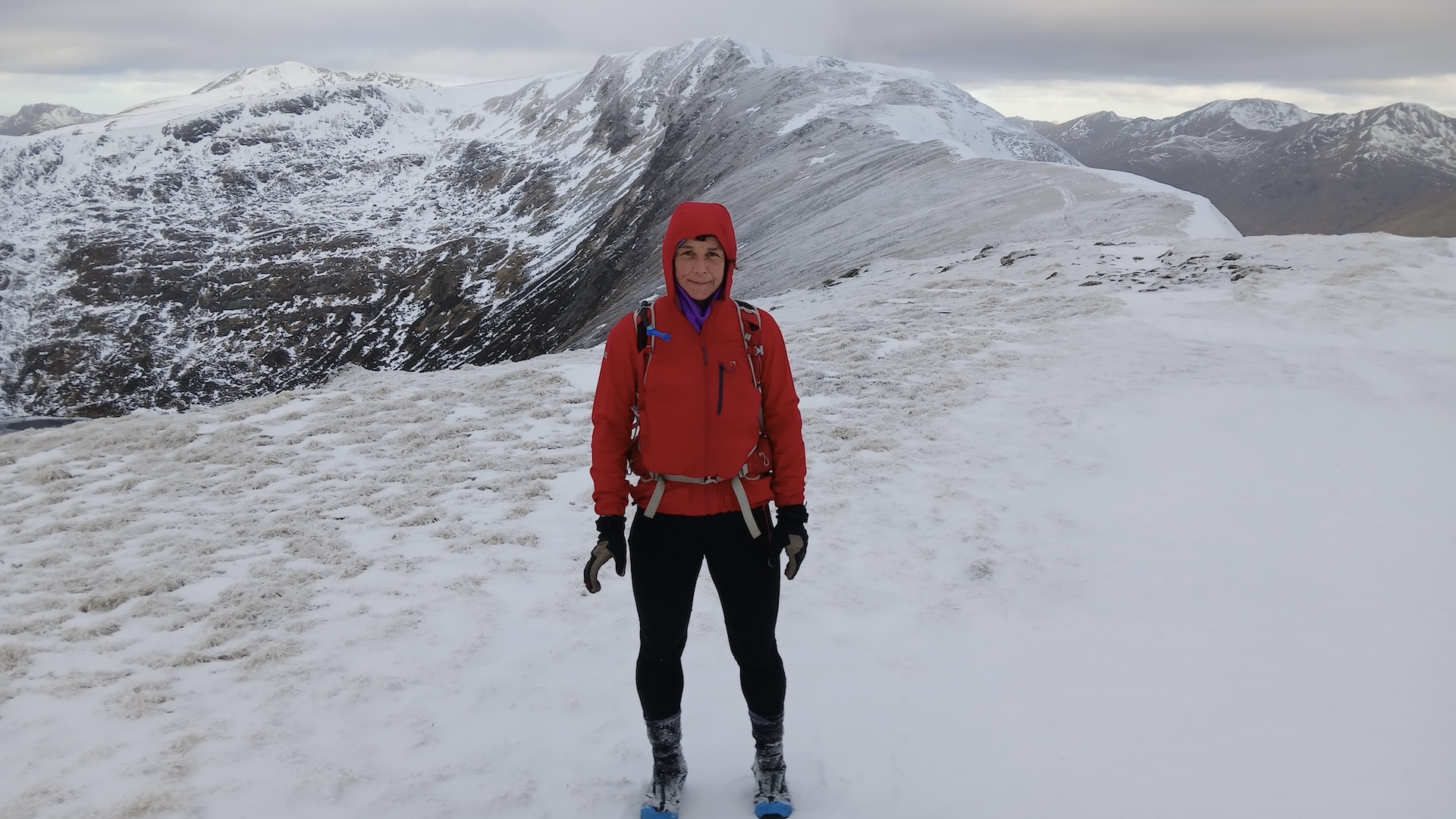The best road to trail running shoes: footwear for all terrains
Grippy, comfortable and propulsive, the best road to trail running shoes help you transition from hard-packed to softer surfaces
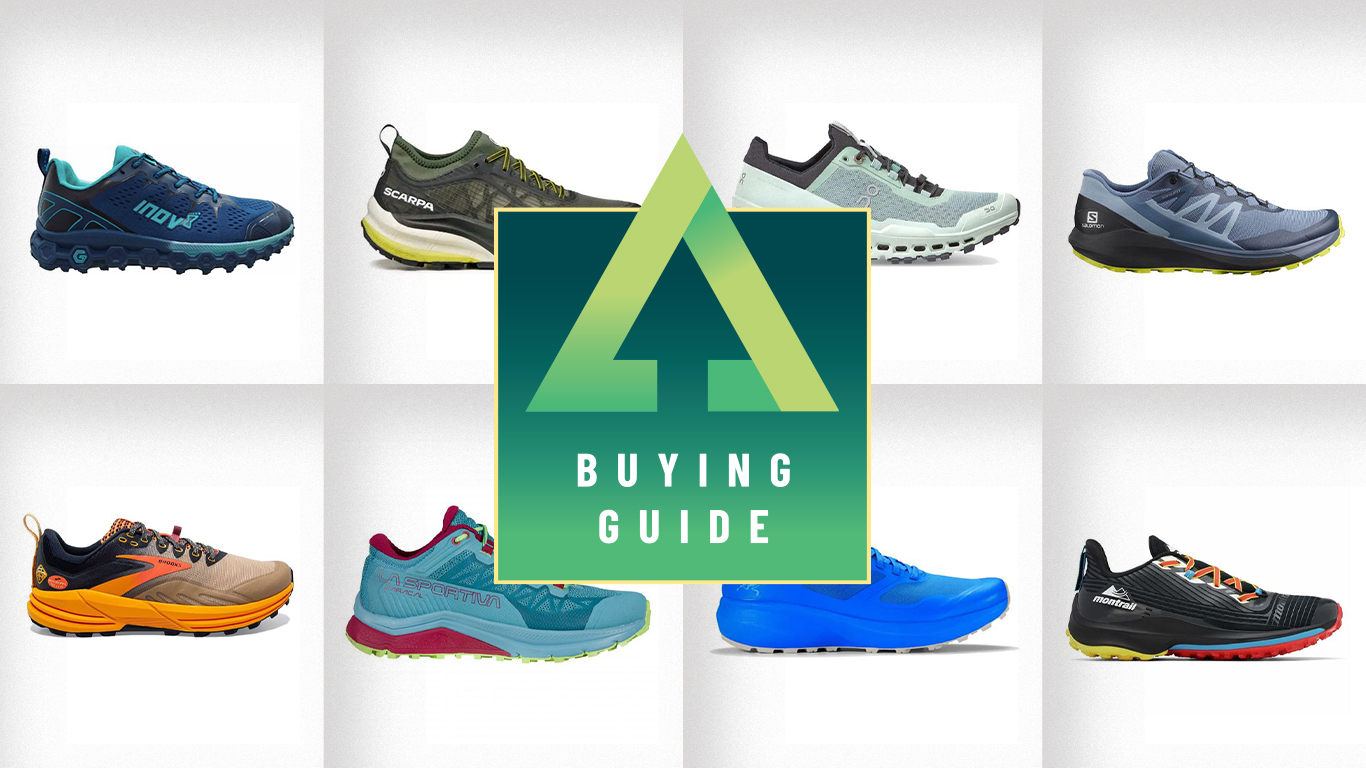
The best road to trail running shoes provide a happy medium between suitability for both hard-packed surfaces and softer ground. They're ideal for those looking to transition from tarmac to the myriad terrain types encountered when trail running, or for those who often pound well-constructed paths or enjoy park runs.
Features wise, the best road to trail running shoes have much in common with trail shoes when it comes to their sole, with cleats to help you keep your footing when roaming off the beaten path. However, they're also cushioned, which is vital for absorbing the force of hitting the pavement when you move onto the road.
We've tested the best road to trail running shoes in a variety of settings to bring you this guide to the very finest options available in 2025. Our pick for the best all-rounder is the Parkclaw G 280 from British brand inov-8, who also make many of the best trail running shoes around.
The quick list
This is the quick list, a snapshot of the best road to trail running shoes available in 2025. To delve deeper into the features and qualities of each featured pair, see our more detailed reviews further down the page in this guide.
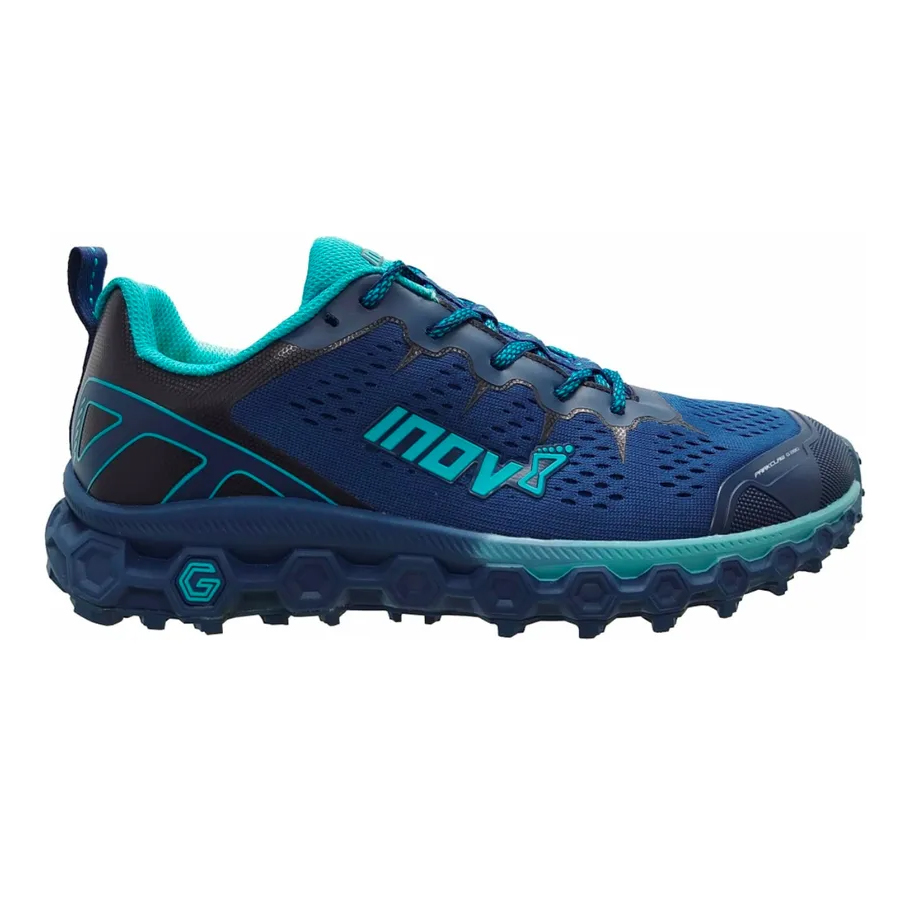
A super robust pair of comfortable, cushioned running shoes with grip that lasts a lifetime that are comfortable right out the box
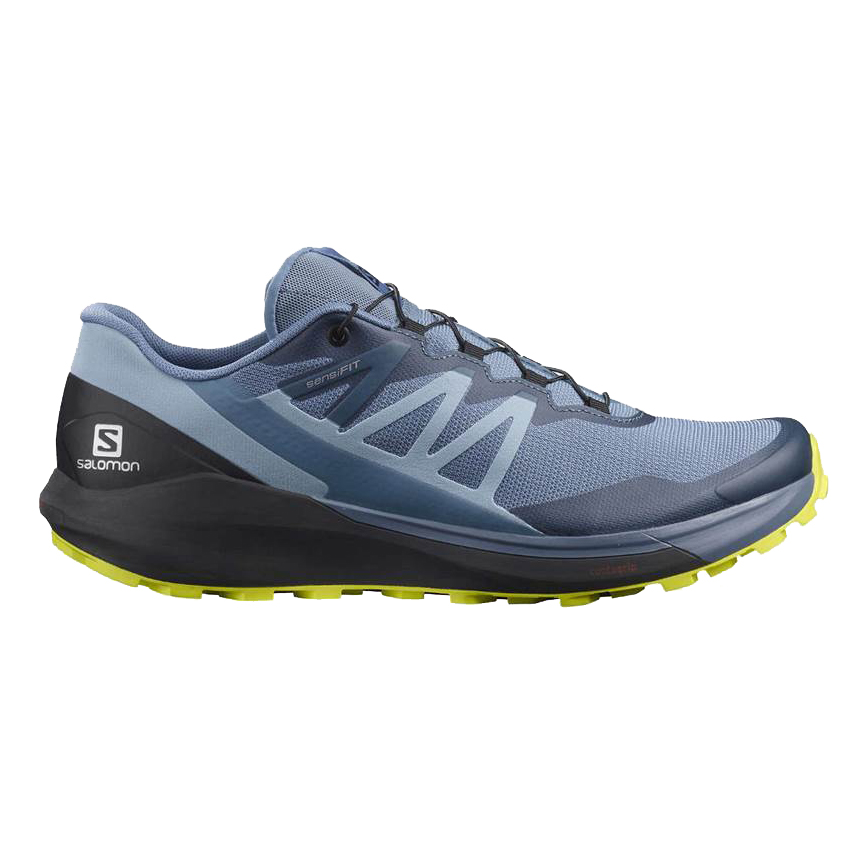
Light-feeling, quick-lacing and designed for tackling soft, muddy trails at speed, with a bit of road thrown in for good measure
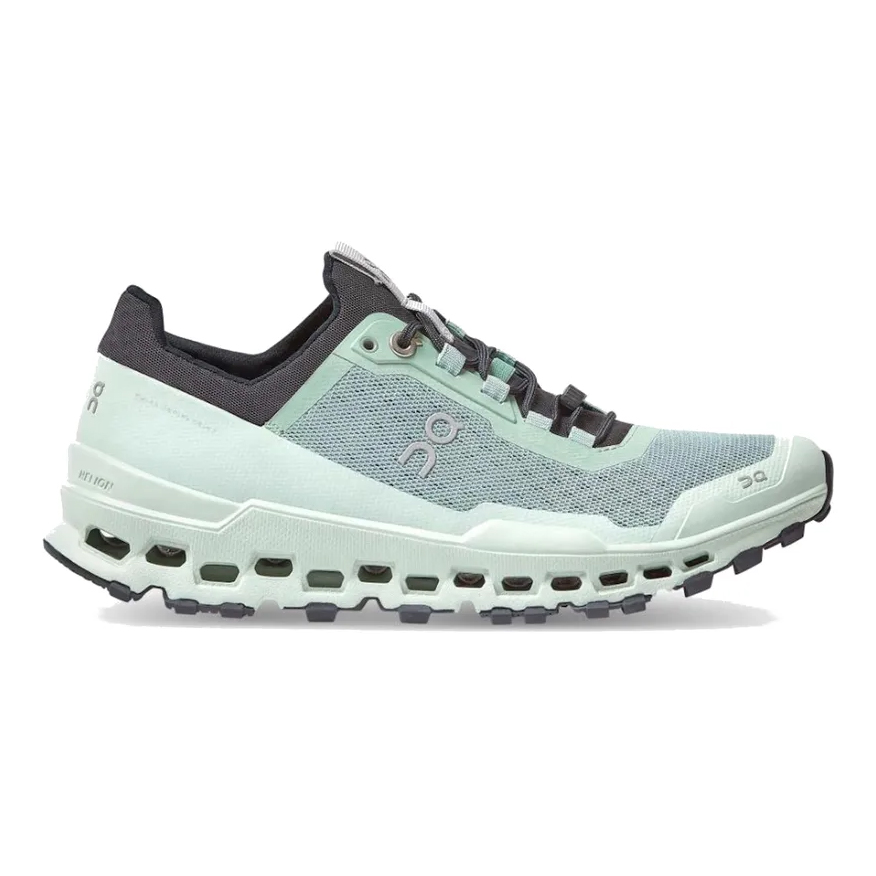
A versatile, durable all-rounder with some unique, innovative features, such as the front lace quick-widening clip, that's perfect for long-distance running and ultras
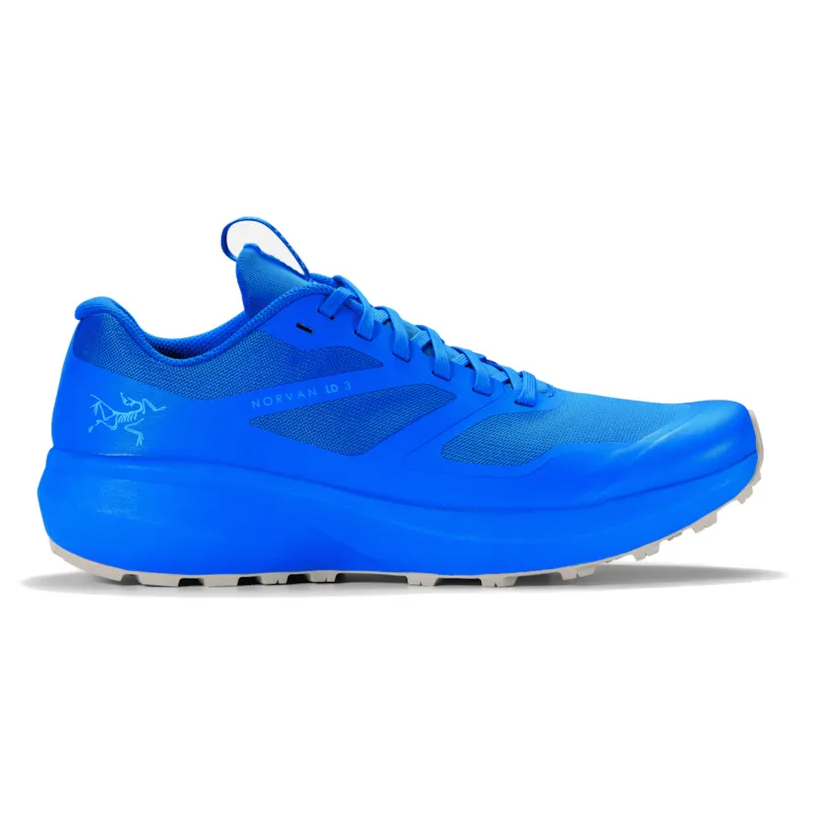
A monochrome statement shoe that truly delivers in lightness, rebound and fun, with a great grip too for the more technical trails in your life
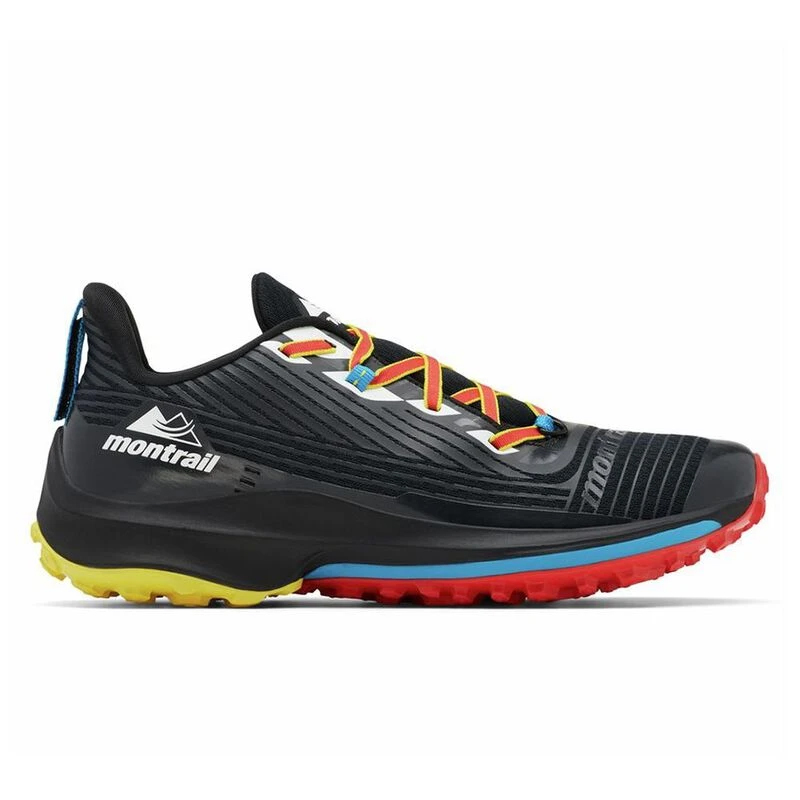
A unique, asymmetric lacing system, great rebound and good grip make for a shoe at home on both roads and trails
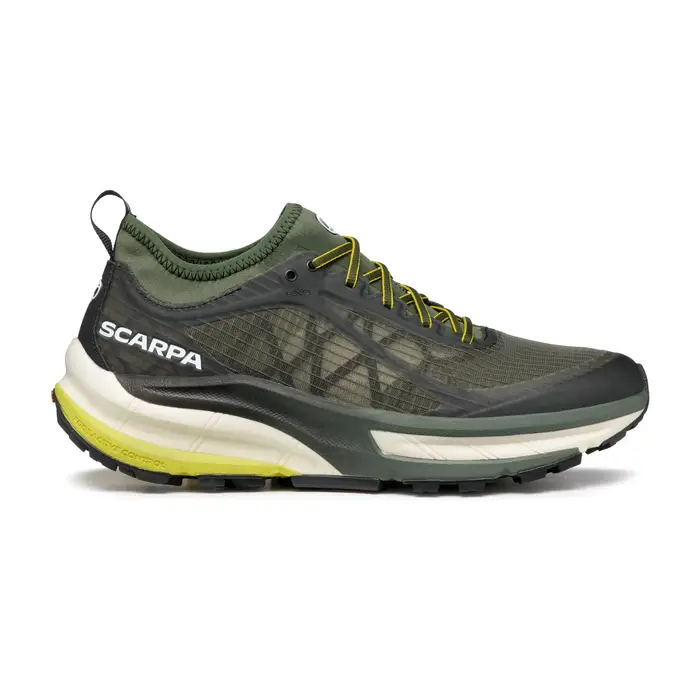
A good-value shoe that’s comfy and padded enough for roads and still grippy on trails with breathable uppers perfect for summertime
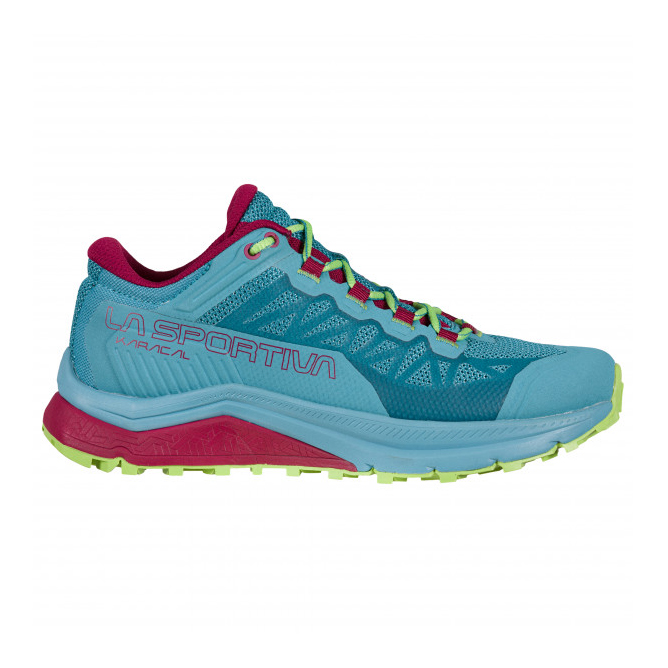
A great value, robust trail running shoe with great grip and enough padding to take care of your feet on an impressive range of terrain types
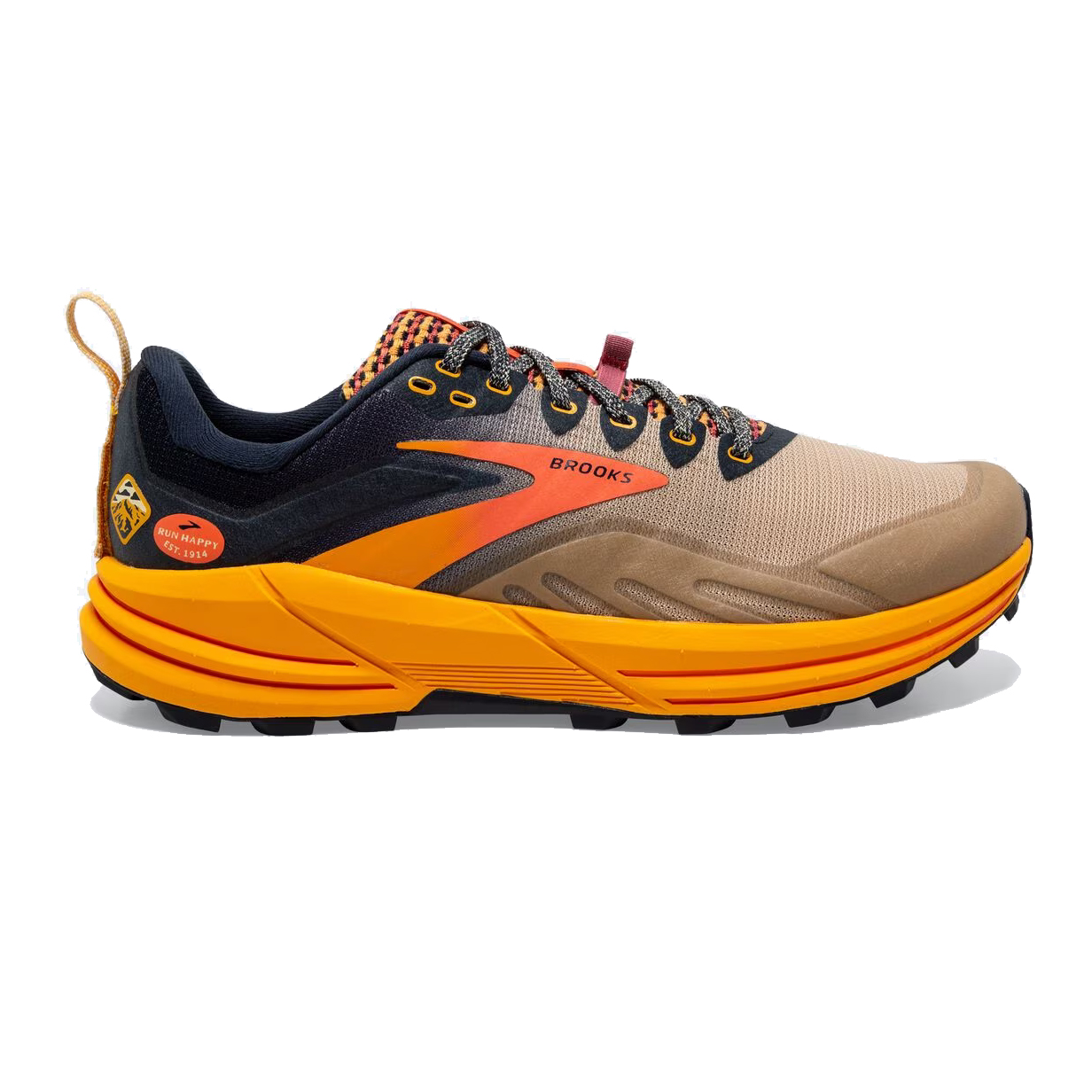
A roomy, grippy road to trail running shoe that likes the trails more than the roads and is available in a wide range of colors
The best road to trail running shoes 2025
You can trust Advnture
The best road to trail running shoe overall
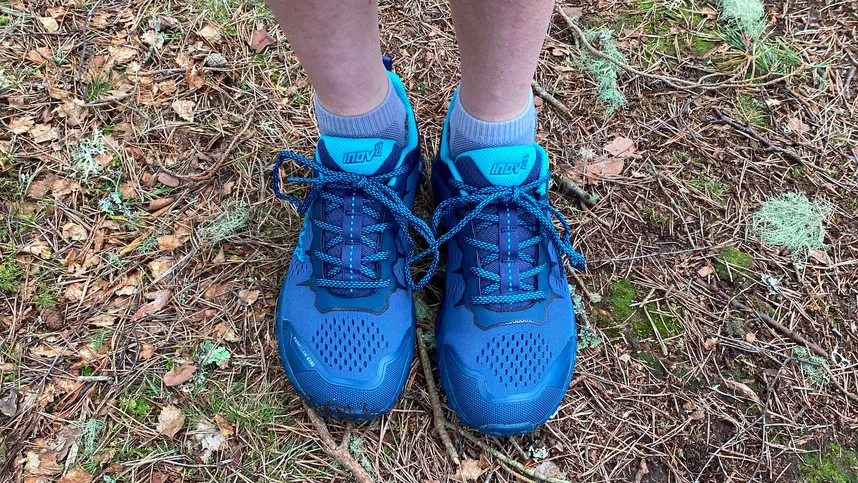
Specifications
Reasons to buy
Reasons to avoid
The incredibly durable grip of the Inov-8 Parkclaw G 280s is thanks to the inclusion of graphene, one of the world’s strongest materials, in the rubber outsole and foam midsole. This is a bombproof road to trail running shoe, which we found was light and comfy straight from the box, with padding from the gusseted tongue and a secure heel.
The outsole is studded with deep cleats for muddy tracks and trails, combined decent cushioning. "It’s great to have a shoe that offers a good balance of cushioning, yet still allows you to feel the trail under your feet," stated one of our running experts. The grip really is excellent on all surfaces.
However, in certain types of especially sticky field mud, this shoe does like to hold on to gloop between its plentiful but narrowly-spaced 4mm deep cleats. The toe box is not super wide compared to some of the others here, which is interesting as it is 4/5 for wideness on Inov-8’s fit scale. The laces are very grippy and stable making for a wonderfully secure fit throughout, but they do take some hoiking as they are laced the opposite way round to most shoes.
Read our full Inov-8 Parkclaw G 280 review
The best road to trail running shoe for grip
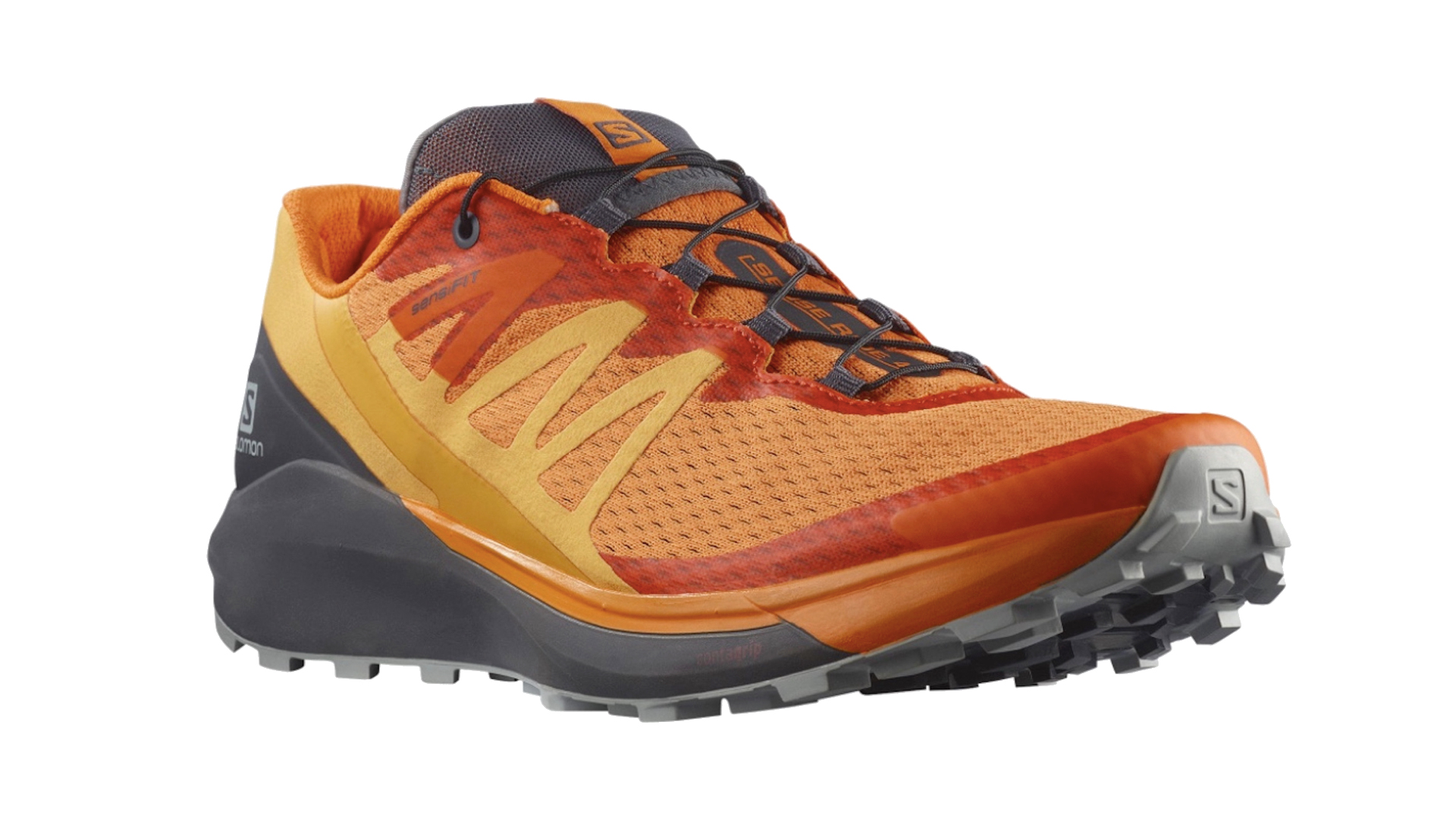
Specifications
Reasons to buy
Reasons to avoid
The Salomon Sense Ride 4s appear lighter than they actually weigh, with a breathable upper and a slim, bendy Optivibe foam midsole that allowed our feet to feel more of the terrain than a more cushioned road to trail running shoe would do. This means that, for most runners, the shoe is better suited to softer terrain – like grassy, muddy trails – more so than huge expanses of rock and road, especially with the excellent all-terrain Contagrip outsole with wide-spaced 4mm lugs.
The fit of the shoe comes up around a half size big, which is actually a good size for those after an even roomier toe box, and we found the padded tongue and gusset are very comfortable too. Salomon’s trademark Quicklace system works really well for most runners. However in this model the top laces criss cross the lace lock housing making it very tricky to stow away quickly. Doh!
Also, the OrthoLite footbed may not work for every foot shape as the arch curve could sit in the wrong place for your foot; if this happens simply replace the footbed with one from another shoe that works for you.
Read our full Salomon Sense Ride 4 review
The best road to trail running shoe for ultras
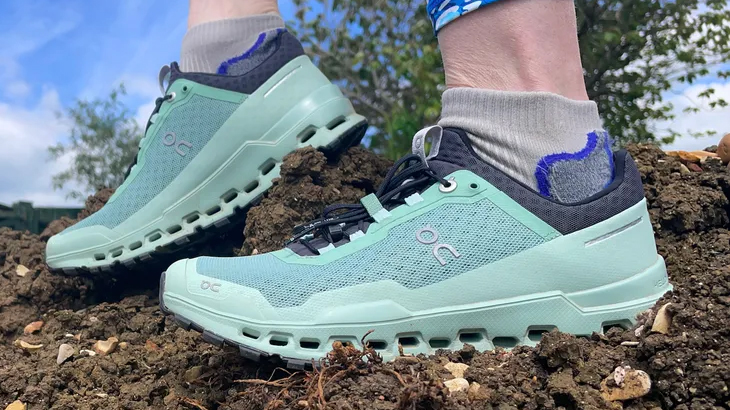
Specifications
Reasons to buy
Reasons to avoid
On Running Cloudultras feel wonderfully snug and securely-fitted with a wide, rounded toe box. The website advises to go half a size up, and this is good advice to ensure the best fit. Our tester says that she "found this a wonderfully comfortable shoe," once the fit is right. Most obviously, the unique feature about On Running’s shoes is their CloudTec pockets in the sole unit – a series of oblong holes that absorb the impact of foot strike and provide rebound.
Having tried On Running’s earlier road running shoes back in 2017 / 2018, the Cloudultras really did not seem to have the same dramatic – almost illegal-feeling – bounce to them. They felt very much the same as all the other running shoes in this test despite the radically different sole unit. They are pleasantly bouncy but no more so than the rest, and when you’re running on trails, mud and grit finds its way into the holes and can get stuck there.
They are also the heaviest in this test at 565g / 20oz for a women’s size UK 6.5, despite them being full of holes! An innovation we found much more useful was the FlipRelease towards the toe-end of the laces. Turn this to expand the laces at this point when your feet swell during longer runs; it’s a very useful feature, especially for ultra runners.
Read our full On Running Cloudultra review
The best road to trail running shoe for propulsion
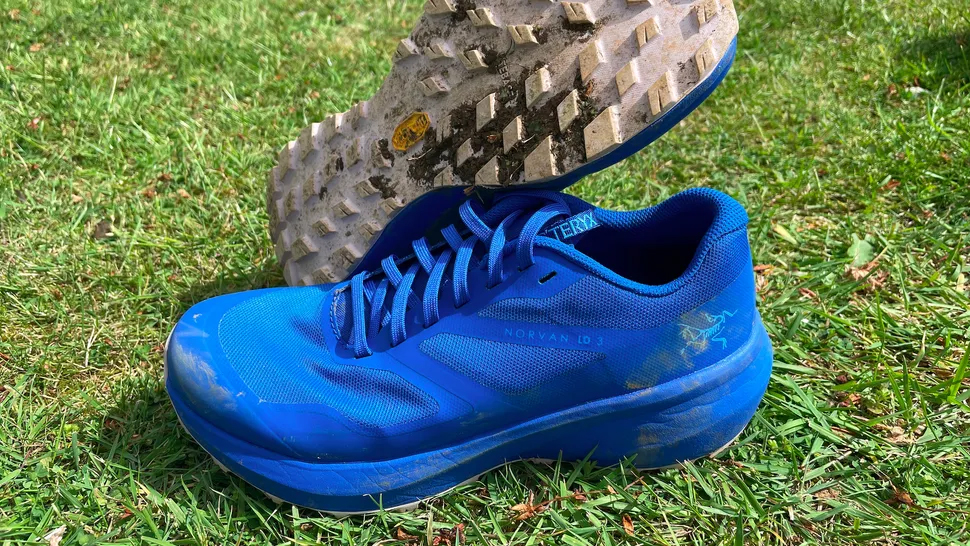
Specifications
Reasons to buy
Reasons to avoid
"Great fun to run in, as they’re so light and bouncy," says our principal trail running expert. The Norvan LD 3 from Arc’teryx is designed for long distances and it certainly gives enough rebound to propel you along the trails in comfort.
Despite the lightweight design, the fit is roomy, great for the larger volume foot, but we wouldn’t advise going down a half size as the toe box is not overly wide. The fit is similar to the Brooks Cascadia 16 but the Arc’teryx InFuse midsole feels bouncier, especially in the heel area. This is good news for heel strikers, especially as the 6mm drop is noticeable compared to the 8mm drop on the majority of shoes here. As a result, the Norvan LD will best suit runners whose Achilles tendons and calf muscles can cope with less of a heel stack.
The Vibram MegaGrip sole with 4mm-deep lugs is superb in both rain and shine, and durable too. But our blue version with white sole is not going to stay white for very long.
Read our full Arc'teryx Norvan LD 3 review
The best road to trail running shoe for toe room
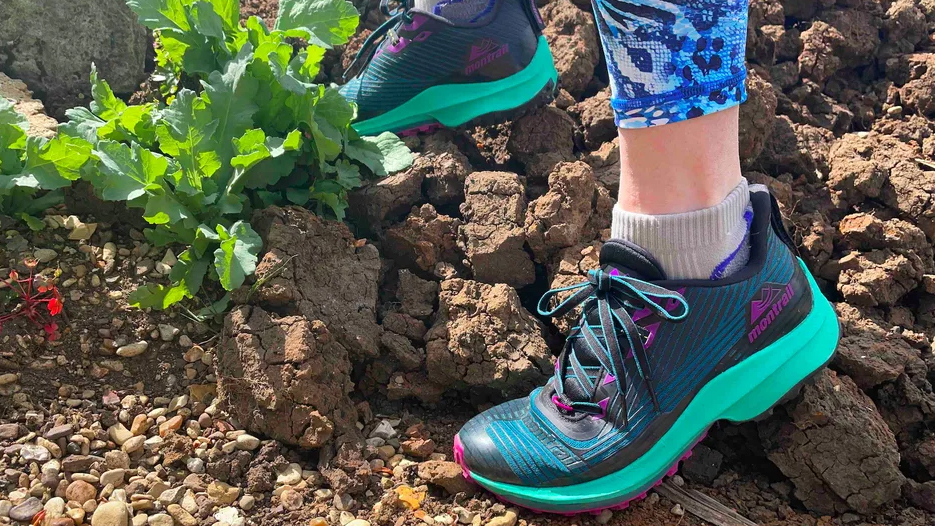
Specifications
Reasons to buy
Reasons to avoid
The Montrail Trinity AG road to trail running shoe from Columbia is unique in its asymmetric lacing, which is fantastic if you’ve tried regular straight-up-the-front lacing and it isn’t working for you. This is called the NavicFit system as it fits over the mid-foot navicular bone, which keeps your heel in place. Cool, but this is a problem we didn’t know needed fixing as we’ve never felt our heel was not in place in other running shoes…!
The padded tongue and debris gusset works in the same way as the other shoes, but we unfortunately found the high, bulky seam attaching them together created a hotspot for blisters when worn for over an hour, especially in the arch area. Double-layer socks would go some way to mitigating this problem if you find the same thing happening to you.
This is a great shame as the ride is super bouncy with their Techlite+ cushioning and the AdatTrax grip is excellent in the rain. The gaiter velcro at the heel and corresponding loop on the front lace make this shoe great for gritty and sandy trails, and the stretchy laces are ideal for swelling feet. If the Trinity AGs fit you nicely, they’re amazing.
Read our full Columbia Montrail Trinity AG review
The best road to trail running shoe for value
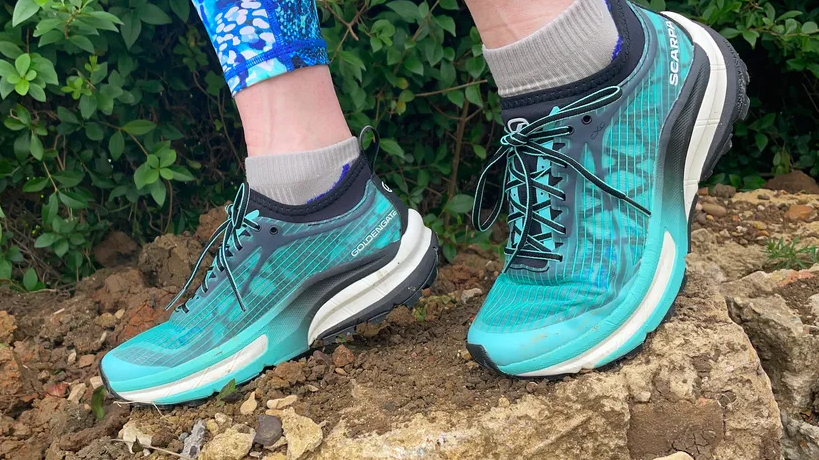
Specifications
Reasons to buy
Reasons to avoid
"A fantastic road to trail shoe" says our trail running expert, the Golden Gate ATR is a highly breathable product with a minimalist heel-to-toe drop of just 4mm. The fit is small, so we advise going a half size bigger if you’re on the cusp of a size, and the feel is very comfortable thanks to the wrap-around Sock-Fit LW, which hugs the foot seamlessly without the need for a stitched tongue and gusset combination. This does make the shoe harder to get on, though.
The ride of this shoe isn’t so much bouncy, as firm and propulsive – the lower drop heel combined with the i-Respond rocker work to push you forward making you feel light and speedy. And who doesn’t want that? The sole is interesting, with Scarpa’s Presa rubber in widely spaced 4mm lugs, but there is an unprotected softer section in the middle of the heel that surely will wear down after a few hundred miles on trails. We’ll keep wearing them to see happens…
Read our full Scarpa Golden Gate ATR review
The best road to trail running shoe for comfort
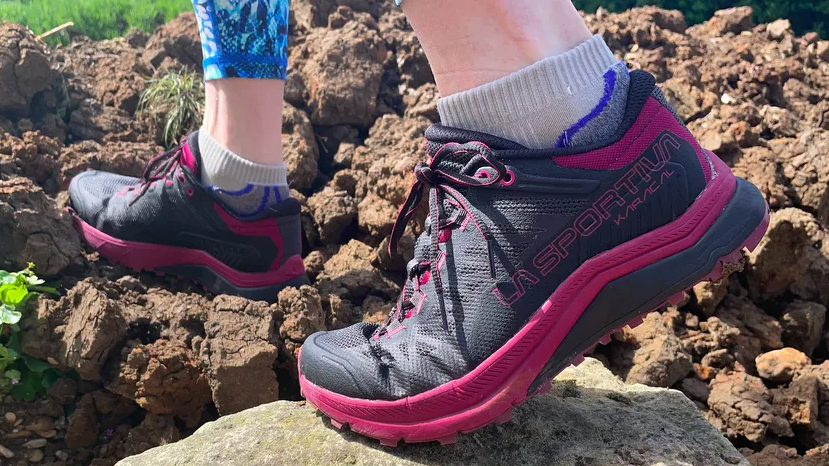
Specifications
Reasons to buy
Reasons to avoid
The La Sportiva Karacal is a very durable, robust-yet-breathable shoe, fantastic for long distances on both roads and trails.
One thing that stands out is the super beefy tongue, which is flexible and padded to provide extreme comfort. This is a major plus – having used the old La Sportiva Jackal, I did find the tongue slipped to the side and allowed one of the lace hole liners to dig in on one side.
In the Karacal there is no such issue. However, this large tongue is held in place only by very narrow gussets further down the shoe and these do have a tendency to wrinkle up and need to be sorted out by poking a finger down there before you continue with the lace up.
Once laced up the fit is super secure and comfortable straight from the box. The toe area is wide and roomy, great for those with hobbit feet, and the FriXion Blue durable grip is excellent in both wet and dry conditions and for a wide variety of trails.
The OrthoLite footbed does have a pronounced rise at the arch that not everyone will get on with; this is the same as in the Salomon Sense Ride 4, so do try this shoe with your previous shoe’s footbed if you find this happening. At this price, the Karacals are a definite must-buy for road to trail running.
Read our full La Sportiva Karacal review
The best road to trail running shoe for cushioning
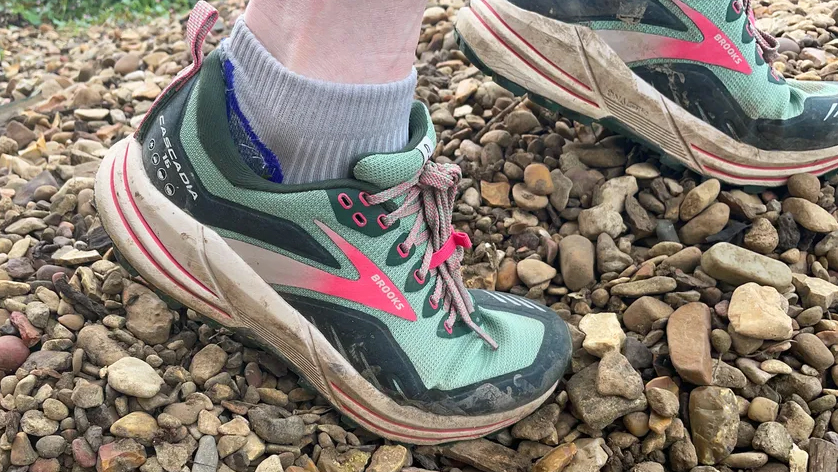
Specifications
Reasons to buy
Reasons to avoid
The Brooks Cascadia 16 is the latest in a long line of Cascadias and it seems to be the brand’s widest version yet. We would advise going down a half size, as the whole shoe is very roomy, which is great for those with wide feet (if that’s you, perhaps stick with your usual size).
Going down a half size would also offset the relative heaviness of this shoe compared to the others in this test. The traditional, wide, grippy laces around the padded tongue secure the foot perfectly, and the elastic lace loop halfway down is great for those with narrow or low volume feet that have plenty of lace spare, or for trail runs through overgrown summer paths.
The feel is a little like putting your foot into a slipper: comfortable straight from the box, you sort of sink into the DNA Loft v2 midsole cushioning. It’s not the bounciest of midsoles but the idea is that the shoe molds to the ground underfoot – it’s purposely not so padded that you lose touch with the terrain under your feet. Our expert tester said: "I liked that I could feel rocky ground underfoot while still remaining protected from it, and I definitely felt stable with the shoe molding around the terrain."
Read our full Brooks Cascadia 16 review
The best road to trail running shoes comparison table
Road to trail running shoe | Price | Drop | Weight (per pair) |
Inov-8 Parkclaw G 280 | $180 (US) / £160 (UK) | 8mm | 510g / 18oz |
Salomon Sense Ride 4 | $120 (US) / £120 (UK) | 8mm | 526g / 18.6oz |
On Running Cloudultra | $180 (US) / £160 (UK) | 8mm | 565g / 20oz |
Arc’teryx Norvan LD 3 | $165 (US) / £150 (UK) | 6mm | 492g / 17.4oz |
Columbia Montrail Trinity AG | $150 (US) / £135 (UK) | 8mm | 531g / 18.7oz |
Scarpa Golden Gate ATR | £125 (UK) / $139 (USA) | 4mm | 509g / 18oz |
La Sportiva Karacal | $130 (US) / £115 (UK) | 7mm | 530g / 18.7oz |
Brooks Cascadia 16 | $130 (US) / £120 (UK) | 8mm | 560g / 19.7oz |
How we test the best road to trail running shoes
All of the best trail and road running shoes included in this guide have been worn on numerous road-running training session and trail-running outings in various conditions, and on routes where the tester began on one surface and later transitioned to the other.
Meet the testers
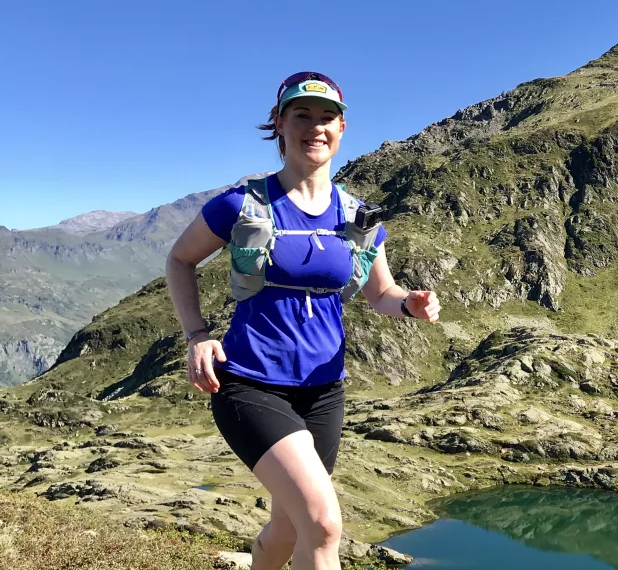
The co-founder and former editor of Trail Running magazine, Claire now runs the YouTube channel Wild Ginger Running, creating films packed with trail- and ultra-running content. An award-winning journalist, she writes for outdoor and adventure sports magazines and websites, and her book The Ultimate Guide to Trail Running 5k to 50k was released in 2021. Claire also speaks and presents at events and races.
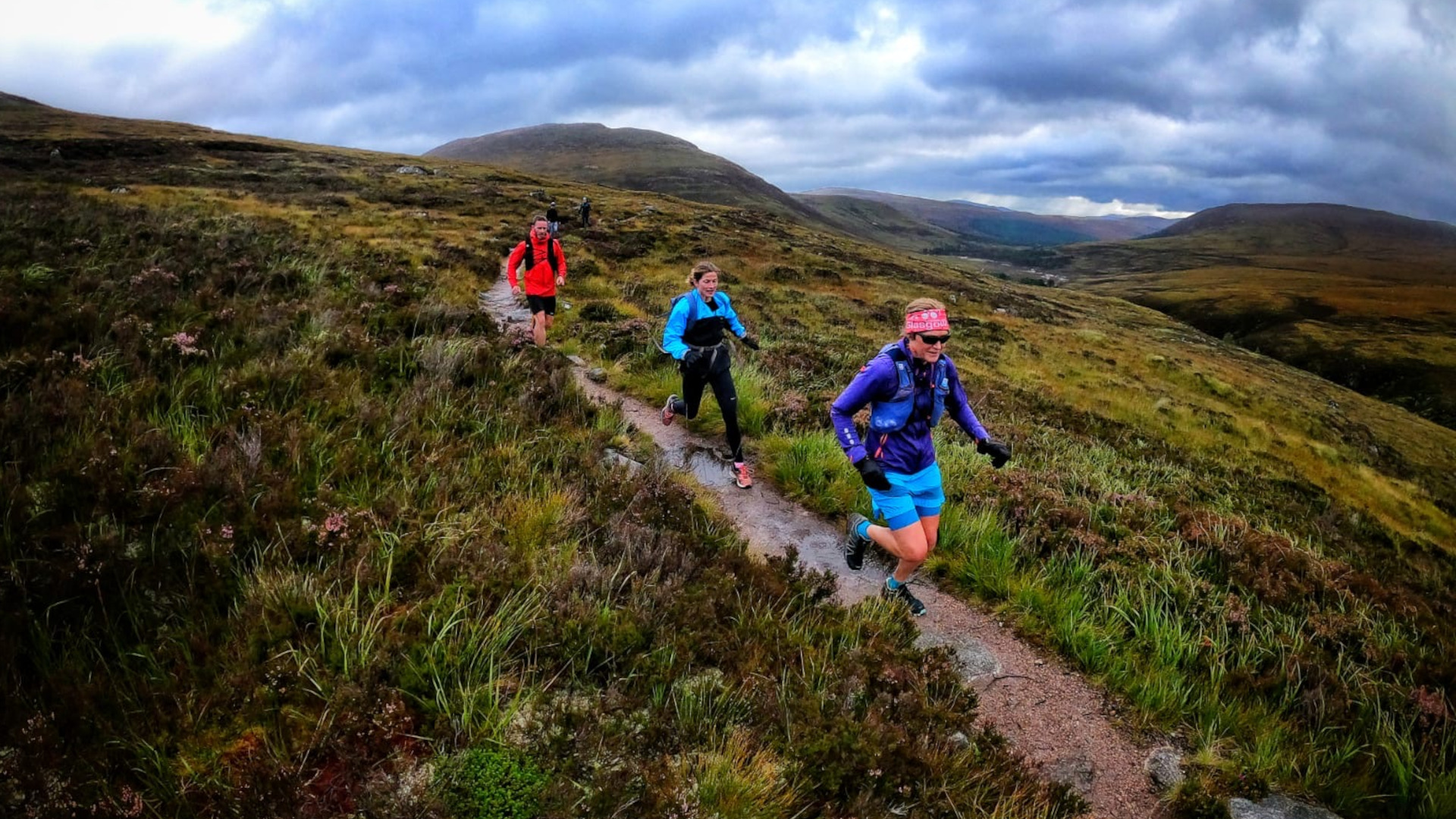
Fiona Russell is a widely published adventure journalist and blogger, who is better known as Fiona Outdoors. She is based in Scotland and is an all-round outdoors enthusiast with trail running among her favourite activities. She's rarely seen without a running skort! Find out more at Fiona Outdoors.

An award-winning travel and outdoors journalist, presenter and blogger, Sian loves a bit of wild running. Her life as an adventure-writer has taken her around the world and she's ran her fair share of incredible trails. Her blog, thegirloutdoors.co.uk, champions accessible adventures.
How to choose the best road to trail running shoes
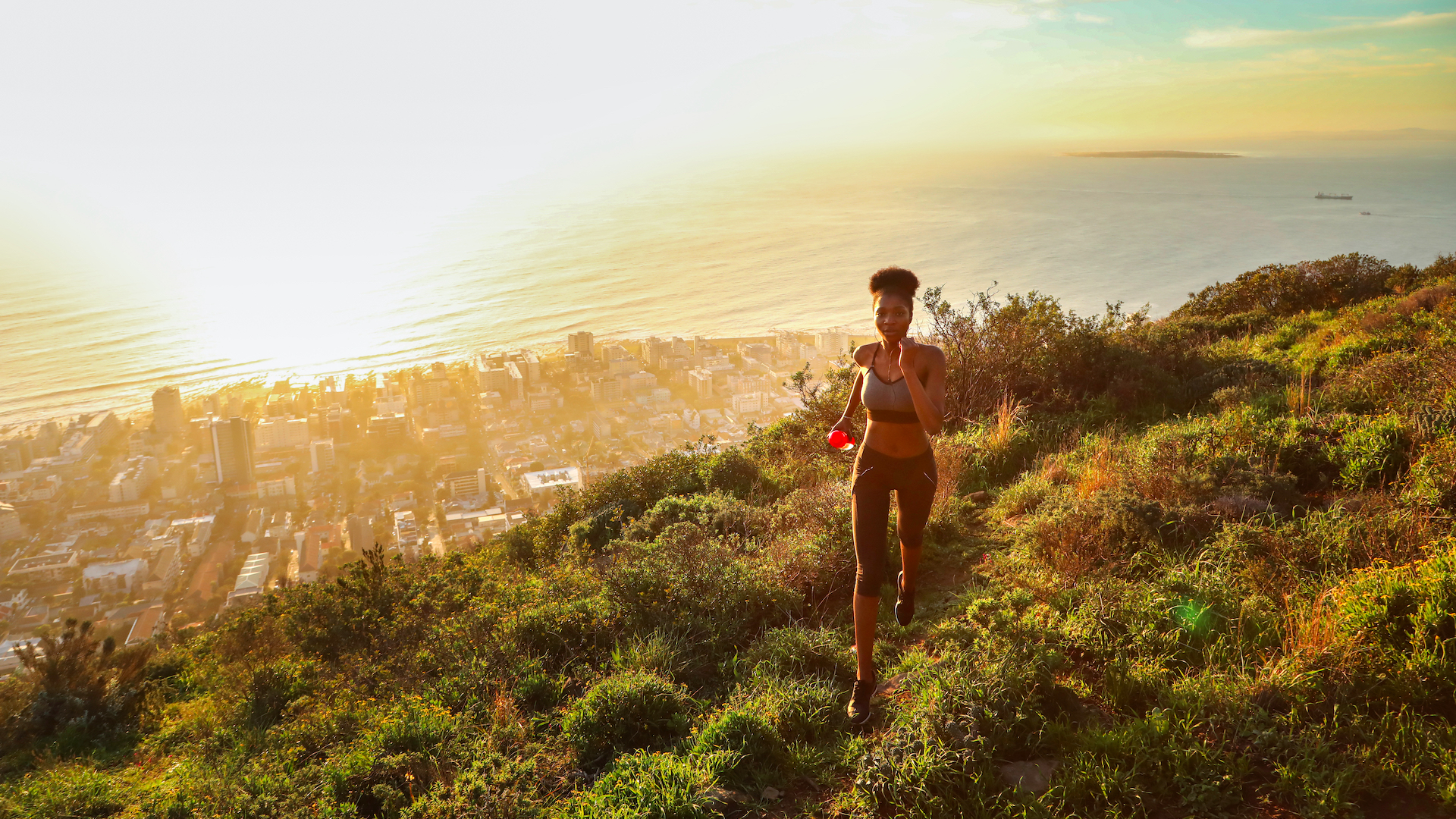
Achieving a comfortable fit is the absolute priority for any kind of footwear, so this is your first priority when looking for the best trail and road running shoes. After that, consider the following factors:
Fit and sizing
We have tried to give an impression of the sizing and foot-shape suitability of each shoe in our reviews to help you select one or two pairs that might fit you the best. Try out two or even three different sizes and run around the house wearing them with your favorite running socks, to find out which fit the best (one of the advantages of internet shopping and generous returns policies).
Drop
This is the height difference between the heel and toe of the shoe, usually expressed in millimeters. Many more traditional road running shoes have around 10mm heel-to-toe drop, so you’re running on a sort of squashy heel. If you’re used to this, suddenly running all your mileage in a 4mm drop shoe loads your lower leg differently and puts a strain on your Achilles tendons and calf muscles, which can lead to injury. Find out what drop your current running shoes have and don’t lower the drop by more than a few mm at a time. Rotating new and old shoes, with lower drop shoes worn for a gradually increasing number of miles is the safest way to do this.
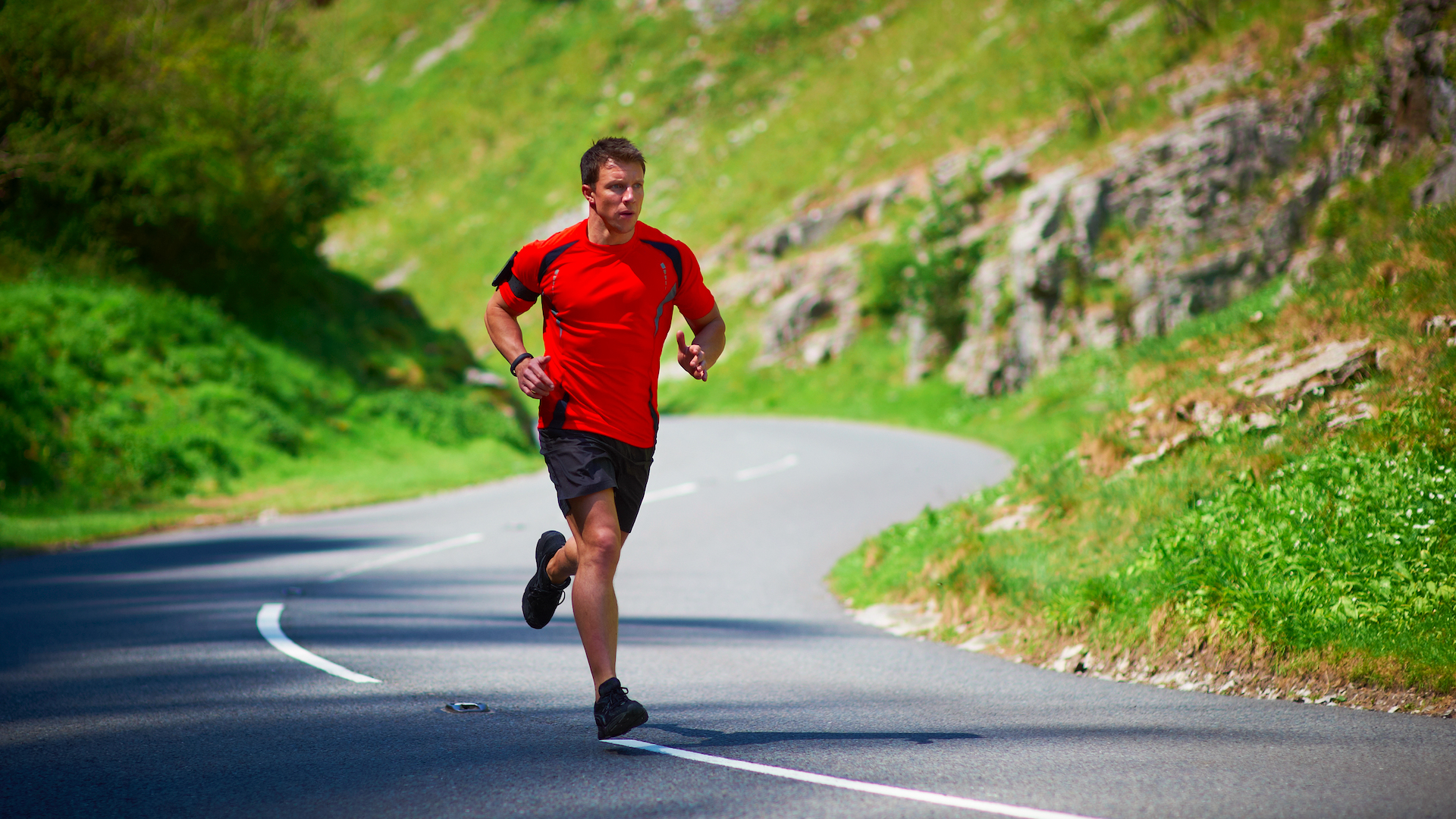
Grip
The best hybrid trail road running shoes are often quite like road running shoes but with a bit of beefier grip to cope with some of the squelchier, rockier and slippier moments as you move over to trail running. Often the lugs are 4mm deep and fairly widely spaced so that pesky mud can’t hitch a free ride by clinging on between them.
Cushioning
The best road to trail running shoes will also have a bit more cushioning than your all-out bog-hopping, mountain-munching fell running shoes (fell means mountain, particularly in the UK’s more northerly parts such as the Lake District). This is to protect you against the pounding of pavements and provide you with a good bit of bounce for hard, gravel trails. Mud running shoes traditionally have less cushioning to increase your foot-to-ground stability, balance and response (proprioception).
Lacing
Most of the best trail and road running shoes have a traditional flat or semi-flat lace with a small amount of give to achieve a secure fit. Some now use skinny laces (not as easy to use with running gloves on), some have stretchy laces (some love them, some hate them) and Salomon shoes in particular use a Quicklace system with a slim cord pulled through a toggle. Most people get on well with the Quicklace system, but some can find it more difficult to achieve the correct fit.
Weight
As with all running gear, it’s a fine balance between the benefit of super-light materials, which enhance speed and reduce effort, and the durability of such gear for the many miles you want to bang out of your running shoes. It’s quite a good idea to train in a heavier pair and then whiz along in a lighter shoe come race day – provided you know they fit just as comfortably.
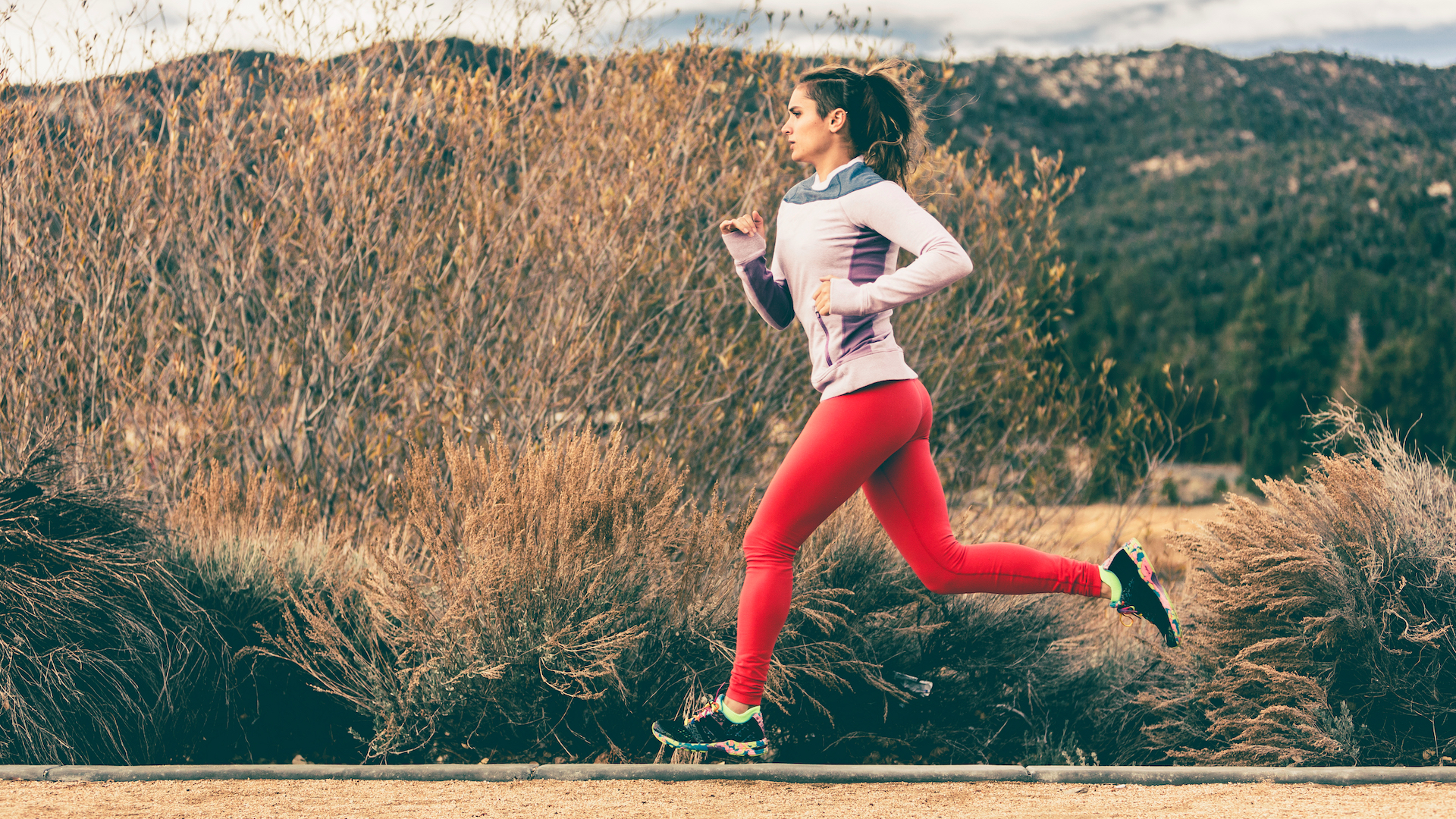
Breathability
The more mesh the shoe has, the more breathable it is likely to be, which is great if you generally run in hot places or get very sweaty feet. It will also drain well after running through puddles. A very breathable upper is less welcome in the cold and snow, when a more water resistant material is good.
Why don’t I want a waterproof running shoe?
Usually the water just gets in over the top and then can’t get out, resulting in trench foot and a very heavy, squelchy shoe. For most situations it’s best to have a non-waterproof road to trail running shoe so the water can drain out. Instead, waterproof socks are a good idea for cold or snowy weather, but these aren’t always as comfy as your fave running socks.
Eco-friendliness
It’s really fantastic to see the current upsurge in eco-friendly sports products and great to see some of the brands in this test using recycled materials in their shoes (see also: the best eco-friendly outdoor brands). We have indicated where brands have stated as such when it comes to the best trail and road running shoes, and highlighted when they’ve not mentioned it. This doesn’t mean the brand is not doing anything environmentally friendly, we just want to encourage this as something brands should be proud of and list as part of the benefits of their products so we can all make a more informed choice.
Advnture Newsletter
All the latest inspiration, tips and guides to help you plan your next Advnture!
The co-founder and former editor of Trail Running magazine, Claire now runs the YouTube channel Wild Ginger Running, creating films about trail- and ultra-running advice, inspiration, races and gear reviews. An award-winning journalist, writing for outdoor and adventure sports magazines and websites, Claire's first book, The Ultimate Trail Running Handbook (5k to 50k), is out now. Her second, The Ultimate Ultra Running Handbook (50k to 100 miles), is out Autumn 2024. Claire also speaks and presents at events and races.
